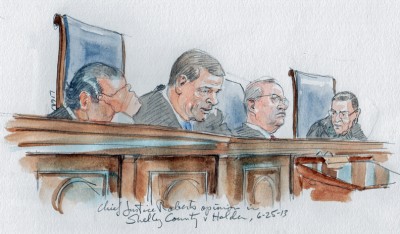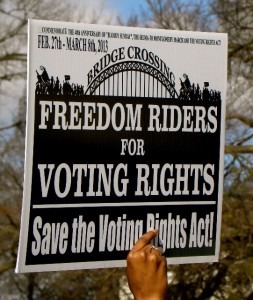The Voting Rights Amendment Act (VRAA), which strives to protect voter rights across the country by strengthening the Voting Rights Act, had its congressional debut this week in a Wednesday hearing. The hearing comes as we mark the fiftieth anniversary of Freedom Summer, and the one-year anniversary of the Shelby County v. Holder decision.
In June of last year, the Shelby v. Holder Supreme Court decision declared a key part of the Voting Rights Act to be unconstitutional. It's the part that said some states needed federal pre-approval (preclearance) before passing new voting laws. States with histories of discrimination that attempted to pass new laws would have those laws subject to Department of Justice approval. After Shelby vs. Holder, those states were allowed to pass new laws without federal oversight.
 One year to the day later, the Senate Judiciary Committee took a good hard look at the Voting Rights Amendment Act, a bipartisan attempt to restore some of the enforcement power that the Voting Rights Act lost in the Shelby v. Holder decision.
One year to the day later, the Senate Judiciary Committee took a good hard look at the Voting Rights Amendment Act, a bipartisan attempt to restore some of the enforcement power that the Voting Rights Act lost in the Shelby v. Holder decision.
Why do we need the Amendment Act? Well, CivilRights.Org has made a list of voting laws that have passed in the last year that it says have violated the Voting Rights Act.
So, what exactly does this week's VRAA hearing mean? It means the Senate has made a few steps toward restoring the enforcement power of Voting Rights Act, but for now, there’s still blockage in the House, which has not yet made plans for a hearing of its own. Civil rights activists will continue to stress the importance of getting the House to pass the VRAA, channeling the spirit of Freedom Summer, which was a massive effort to empower the very voters that the Voting Rights Act exists to protect.
